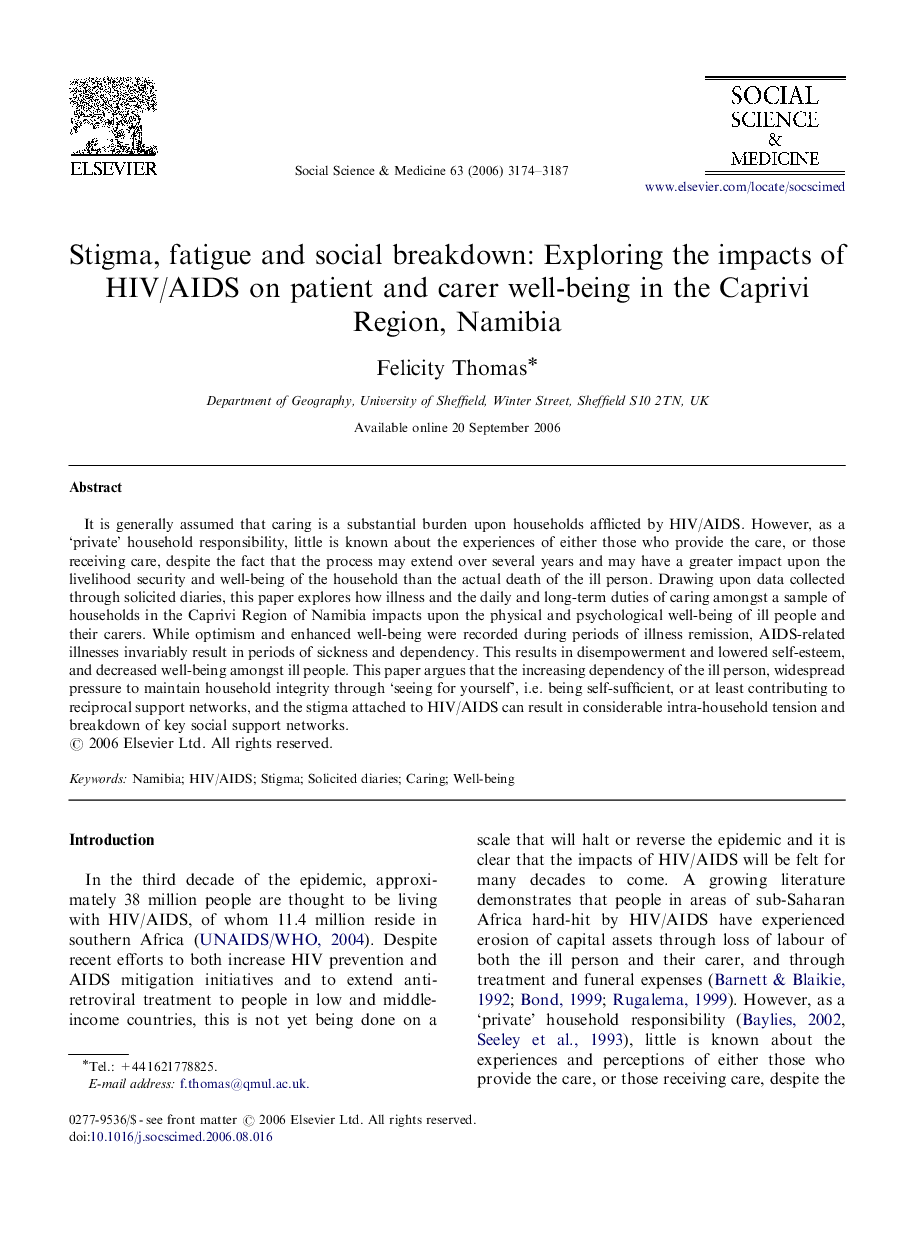| Article ID | Journal | Published Year | Pages | File Type |
|---|---|---|---|---|
| 954089 | Social Science & Medicine | 2006 | 14 Pages |
It is generally assumed that caring is a substantial burden upon households afflicted by HIV/AIDS. However, as a ‘private’ household responsibility, little is known about the experiences of either those who provide the care, or those receiving care, despite the fact that the process may extend over several years and may have a greater impact upon the livelihood security and well-being of the household than the actual death of the ill person. Drawing upon data collected through solicited diaries, this paper explores how illness and the daily and long-term duties of caring amongst a sample of households in the Caprivi Region of Namibia impacts upon the physical and psychological well-being of ill people and their carers. While optimism and enhanced well-being were recorded during periods of illness remission, AIDS-related illnesses invariably result in periods of sickness and dependency. This results in disempowerment and lowered self-esteem, and decreased well-being amongst ill people. This paper argues that the increasing dependency of the ill person, widespread pressure to maintain household integrity through ‘seeing for yourself’, i.e. being self-sufficient, or at least contributing to reciprocal support networks, and the stigma attached to HIV/AIDS can result in considerable intra-household tension and breakdown of key social support networks.
